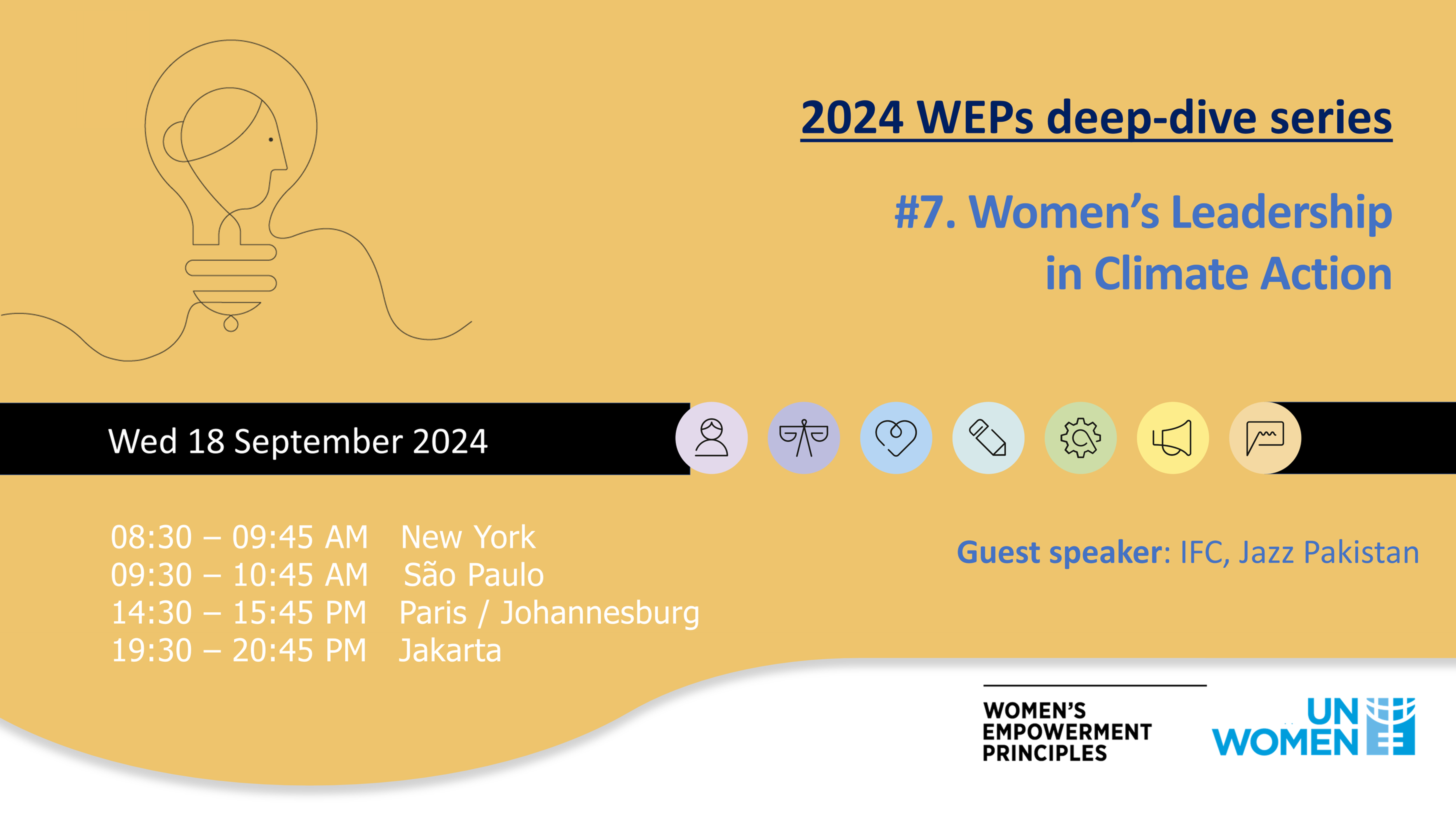As the global community works towards the 2030 Sustainable Development Goals (SDGs), the need for women's leadership in climate action has become increasingly evident. This critical issue was the focus of the seventh session of the 2024 WEPs Deep-Dive Series on Women’s Leadership for Climate Action.
The webinar featured speakers Loty Salazar from the International Finance Corporation (IFC) and Rabia Khattak from Jazz Pakistan, who shared valuable insights on how women are essential in corporate sustainability and climate governance. Joining them were Anna Falth, Global Head of the WEPs Secretariat at UN Women, and Maja Lofstrom, Programme Analyst at the WEPs Secretariat, who emphasized the importance of integrating gender equality into climate solutions across sectors.
Rabia Khattak highlighted the specific challenges faced by women in rural Pakistan, where the impact of climate change, such as floods and unpredictable weather, severely impacts livelihoods. She discussed Jazz’s initiatives to empower women, including digital literacy programmes support for flood-affected communities, and the implementation of gender-responsive climate policies. Khattak stressed the importance of ensuring that women, particularly those from marginalized communities, are central to climate action.
Loty Salazar emphasized that businesses with more women in leadership roles are better positioned to tackle climate risks and develop comprehensive sustainability strategies. She also acknowledged the barriers many companies face, particularly in emerging markets, including limited resources and a lack of formal climate policies. Salazar encouraged more businesses to adopt gender-responsive climate governance, which is critical to achieving both sustainability and inclusion.
Anna Falth reinforced the importance of women’s leadership in climate advocacy, noting how women’s involvement in corporate governance enhances environmental sustainability. She urged leaders to prioritize gender equality in their climate strategies, and actively engage in future climate discussions. Maja Lofstrom further highlighted the disproportionate impact of climate change on women and girls, especially in low-income countries, and the need for more businesses to integrate gender equality into their climate efforts.
This session underscored that women's leadership is not only essential for effective climate action but also for building a sustainable and inclusive future. As the private sector continues to address global environmental challenges, aligning gender equality with climate goals will be key to driving meaningful change.
Click here to watch the recording.

